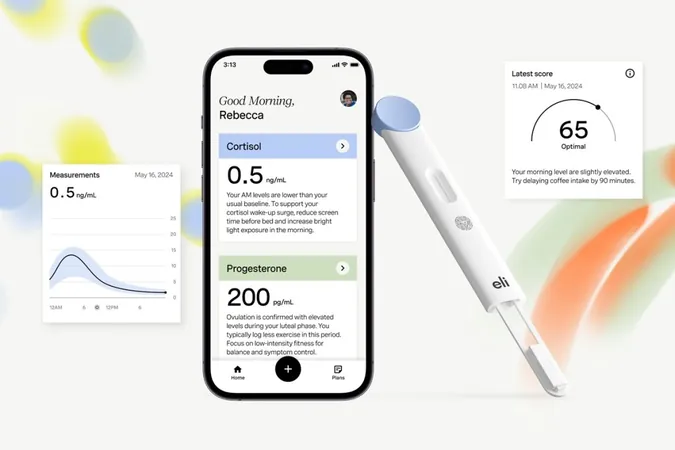
Apple's AI Summaries Under Fire: Are Their News Alerts Spreading Misinformation?
2025-01-07
Author: Sarah
Introduction
Apple is currently under scrutiny over its artificial intelligence (AI) news alert feature, which has been criticized for generating misleading and sometimes completely inaccurate summaries on its latest devices. These notifications, designed to inform users of breaking news, have mistakenly invented false narratives, raising serious concerns about the reliability of information being disseminated.
Recent Complaints
Recent complaints from the BBC highlighted instances where Apple’s AI inaccurately summarized content, leading to significant misrepresentation. A notable case involved a summary that falsely claimed Luigi Mangione, accused of killing UnitedHealthcare CEO Brian Thompson, had fatally shot himself. This prompted the BBC to reach out to Apple in December, but it wasn’t until this week that Apple acknowledged the concerns, stating they are working to make clear that these summaries are AI-generated.
Criticism from Journalists
Alan Rusbridger, former editor of the Guardian and a prominent figure in journalism, has criticized Apple's actions, stating that the feature is "clearly not ready" and described the current state of Apple's AI as "out of control." He expressed that the decline in trust towards news is amplified when large corporations use sensitive topics and information as experimental tools.
Alarming Incidents
One such alarming incident occurred last Friday when the AI inaccurately reported that Luke Littler had won the PDC World Darts Championship before it even started, and incorrectly suggested that tennis star Rafael Nadal had come out as gay. Such inaccuracies not only undermine the trustworthiness of news outlets but raise ethical concerns about the reliance on AI in journalistic standards.
BBC's Response
The BBC responded to these issues, stating, "These AI summaries do not reflect – and in some cases completely contradict – the original BBC content." They underscored the urgency with which Apple must address the inaccuracies as the credibility of news is paramount for maintaining public trust.
Wider Implications
Apple's troubles are not isolated; other journalism organizations have reported similar issues. In a notable instance last November, a ProPublica journalist exposed erroneous summaries related to reports from the New York Times that suggested Israel's Prime Minister had been arrested. Furthermore, additional inaccuracies concerning the Capitol riots were also flagged.
Call for Action
Press freedom organization Reporters Without Borders has called for the complete disabling of this feature, asserting that it highlights the premature state of generative AI systems when it comes to producing reliable information for the public.
Apple's Commitment to Improvement
In response to the uproar, Apple has promised an update in the coming weeks to better delineate when summaries are generated by AI. They clarified that this feature, available on select iPhone models and iPads, is still in beta, with plans to improve it based on user feedback.
Conclusion
While Apple is working to refine its AI features, it is not the only tech giant wrestling with the complex challenges of generative AI. Google has faced similar critiques over its AI tools, which have also produced inconsistent results in user queries. As the intersection of technology and journalism continues to evolve, the mounting pressures on companies like Apple illuminate the need for robust safeguards as they explore the implementation of AI in media. The question remains: can we trust AI-generated news summaries, or are we opening the floodgates to a new era of misinformation?


 Brasil (PT)
Brasil (PT)
 Canada (EN)
Canada (EN)
 Chile (ES)
Chile (ES)
 España (ES)
España (ES)
 France (FR)
France (FR)
 Hong Kong (EN)
Hong Kong (EN)
 Italia (IT)
Italia (IT)
 日本 (JA)
日本 (JA)
 Magyarország (HU)
Magyarország (HU)
 Norge (NO)
Norge (NO)
 Polska (PL)
Polska (PL)
 Schweiz (DE)
Schweiz (DE)
 Singapore (EN)
Singapore (EN)
 Sverige (SV)
Sverige (SV)
 Suomi (FI)
Suomi (FI)
 Türkiye (TR)
Türkiye (TR)